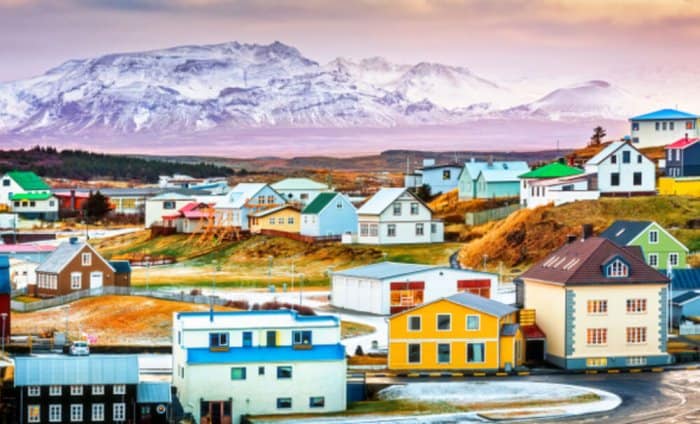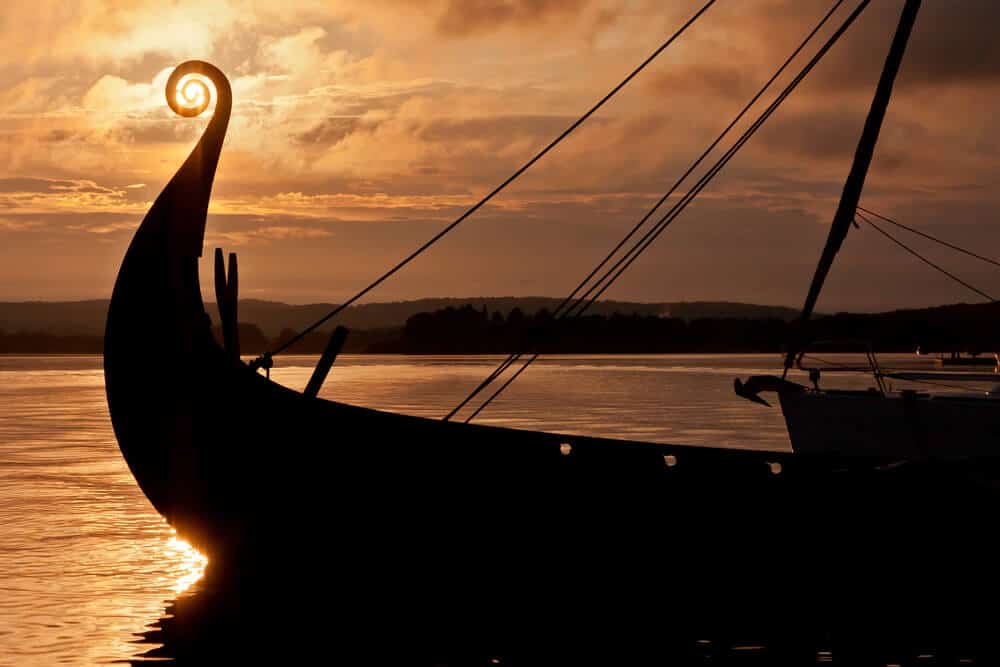Growing up in a country whose nickname is ”The Land of Fire & Ice” bred a certain mentality. Iceland is a country filled with contradictions. The small volcanic island is one of the youngest landmasses on the planet, yet it has the oldest forms of democracy. Iceland is home to some of the most violent volcanoes in the hemisphere, yet the landscape is known for being a tranquil, serene escape for tourists who want to “get away from it all.”

The name itself, Iceland, is a contradiction. While Iceland is cold, it doesn’t receive as much snow as much as one would think. The statistics about the country provide the starkest contrasts. Iceland incurred a massive economic disaster just ten years ago, has one of the harshest winters in the world (concerning available light), yet it placed 4th on the international happiness scale. This information inevitably brings readers to the same conclusion: how?
I believe the most significant clue in answering this Nordic thought experiment comes in examining our Icelandic mindset or mentality. First, we must travel way back in time. Like really far back. As in over 1000 years. To get a better idea or insight into the Icelander’s inner workings, as it relates to their life philosophy. We must examine a bit of history to understand how it has affected the present.
The earliest recorded settlement of Iceland was around the early 870s AD. Historically, life up until very recently has been tough for most humans. I have a bit of a panic attack when I cannot connect to WiFi, and imagining what life was like back then is enough to make my skin crawl. Then, add in an unstable environment, harsh climates, and volcanoes into the equation and it’s a miracle anyone survived long enough to settle the subarctic island.

While volcanoes can be aesthetically pleasing, they often make life a bit more complicated, and Iceland is littered with them, including active ones. 1783 marked the beginning of volcanic eruptions which would continue for around five months. The fallout from the eruptions was called, “Móðuharðindin” or, “The Mist Hardships.” 20 to 25 percent of the population perished due to famine, and astronomical numbers of livestock died as well. Major cataclysmic events such as these were few and far between, but devastating geological events withstanding, life was (and often still is) tough.
We remain an even-tempered people who have a great sense of humor and are very content with life. To combat the extremes of our environment, almost half (studies have shown a little more than half) have adopted the phrase “þetta reddast” as a personal mantra and maxim. þetta reddast is a simple and understated phrase. Pronounced (that-ta red-ust) in Icelandic, it roughly translates to, “everything will work out in the end.” The phrase may be simple, but it carries with it a great weight. It is a carefree and easy maxim to apply to your mindset, which in turn percolates into your quality of life.
By accepting that “everything will work out in the end,” you ostensibly must also accept the fact that certain things are out of your control. Imagine you are an Icelander in the late 1700s. You see a volcano erupt in the distance. What are you to do? You can, of course, give yourself as much distance as a possible from the lava-spewing mountain in the distance, but can you be angry? Not really. Is it worth your time imagining all the things you are going to lose, or is it better to appreciate the things that you have instead? These rhetorical questions may seem fanciful, but they apply even in a modern context.

By accepting that things are often out of our control, and also, that things generally work out in the end, you gain a great sense of freedom. It is difficult to live within the paradigm of this maxim every day. Interconnectedness, new technology, and globalization provide everyday people with more and more distractions and thus more things to worry about. So we try to live in the moment. Not to worry so much about the challenges and problems that are out of our control. This lets us focus on the aspects of life that make us happy. To me, it is no wonder that Iceland is fourth on the happiness index. Once you begin to apply þetta reddast to your life, you become much more grounded and relaxed. I’m mainly upset we weren’t first on the list!
The Icelandic Outlook on Life – þetta Reddast
So, if you find yourself overwhelmed by life, imagine the medieval Icelander for a moment. They would have had no heat, no electricity and only a few hours of sunlight in the winter. The temperatures were well below freezing throughout the winter, and volcanoes surrounded them. Your problems may not be as mortally grave, but they are still important. Take a moment and think about the phrase þetta reddast and what it means. Just trust that everything will work out in the end, and it usually does. There is a reason that our people have survived for as long as we have. In conditions as harsh as ours, we trust things will work out. And funny enough, they usually do.




